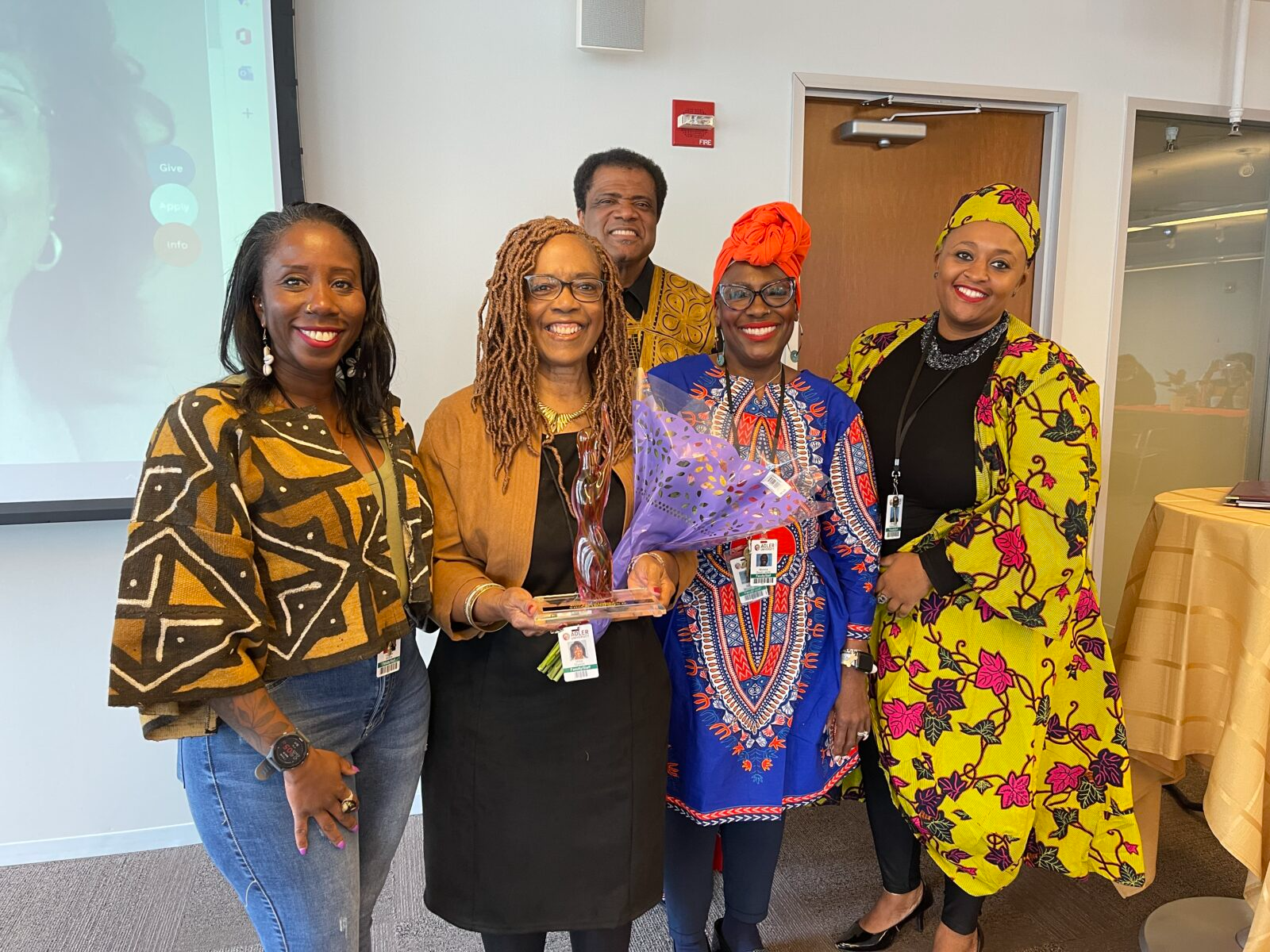Vida Dyson, clinical psychologist at the University of Chicago Research Program | Adler University
Vida Dyson, clinical psychologist at the University of Chicago Research Program | Adler University
Vida Dyson, Ph.D., was working as a clinical psychologist at the University of Chicago Research Program at the former Illinois State Psychiatric Institute when approached to teach at the then-Adler School of Professional Psychology.
It was 1992, and Adler had set its sights on increasing the diversity of its faculty members. Meanwhile, Dr. Dyson enjoyed the idea of training future clinical psychologists, along with helping them to be more aware of the mental health needs of diverse communities.
“That’s really the reason why I came to Adler,” said Dr. Dyson, professor in the Chicago Campus’ Doctor of Psychology (Psy.D) in Clinical Psychology program. “I wanted to do my part in recruiting and educating more people from different groups and helping them become mental health professionals.”
When Dr. Dyson accepted the position, she became Adler’s first Black faculty member.
Thirty years later, as she spends her last few weeks at Adler before retiring at the end of the month, Dr. Dyson said she’s still reluctant to call herself a pioneer.
“I’m very humbled because I never saw myself accomplishing my work singularly, it has always been in collaboration with others,” she said. “I’ve always felt I was here to make a contribution.”
For those contributions, Dr. Dyson will be honored on Dec. 5 from 11 a.m.-12:30 p.m. CST during a celebration at Community Hall on the Chicago Campus. A Zoom broadcast of the event will be available.

Dr. Vida Dyson, center, poses for a photo during the Meet the Black Faculty & Staff event on Nov. 30, where she was celebrated for her retirement and legacy as Adler’s first Black faculty member.
Born and raised in Chicago, Dr. Dyson received her bachelor’s degree in psychology at DePaul University. She then earned her master’s degree and Ph.D. in psychology from the University of Chicago. She also completed a postdoctoral certificate in clinical neuropsychology at Fielding Institute.
Prior to Adler, Dr. Dyson’s work focused on conducting research on mental illness at the Psychiatric Institute with a team from the University of Chicago, and later at the University of Illinois-Chicago. Dr. Dyson also worked with severely mentally ill adolescents and adults with the Department of Mental Health and Developmental Disabilities, an old version of the Illinois Department of Human Services.
At the University of Illinois Institute for Juvenile Research, Dr. Dyson said she worked in an in-patient unit as part of a program created for adolescents with histories of multiple psychiatric hospitalizations and residential placement. When it comes to published research, most of her work was related to the assessment and treatment of substance use problems among those with severe mental illness.
When recruited to Adler, Dr. Dyson first taught a course on multicultural assessment as a part-time core faculty. She later taught courses on assessment, child and adolescent psychology, and diversity at the University’s Doctor of Psychology (Psy.D.) in Clinical Psychology program. In 2004, Dr. Dyson became a full-time core faculty member.
“At the time, the school’s mission shifted to training socially responsible practitioners,” she said. “I wanted to be part of the faculty that was working on implementing that shift.”
Dr. Dyson was a founding member of a committee focused on diversity and inclusion on the Chicago Campus.
“That committee was focused on recruiting students, faculty and staff from diverse backgrounds and ensuring everyone was supportive of the school’s commitment to social justice and training socially responsible practitioners,” she said, adding the committee played a role in influencing the curriculum of the school.
As a faculty member, Dr. Dyson played a key role in the development and implementation of the University’s Diversity Leadership Program, which provides opportunities for Psy.D.-level students of color to find community, develop a sense of belonging, and receive academic support, resources, and advisement. This program is now under the auspices of the Center for Diversity at the University.
Dr. Dyson also served as a faculty advisor for several student organizations, including the Child and Student Adolescent Association, which is still thriving today. She was the first faculty member to serve as an advisor for the Adler Black Student Association, one of the oldest student organizations on campus.
“The students at the time really wanted to create an organization that would make an impact,” she said. “And I’m proud to have done my part in supporting them along the way.”
After three decades of teaching at Adler, Dr. Dyson said she’s happy to know that many of her former students are finding success.
“They’re doing the work that I helped train them to do,” she said. “And excelling at it.”
During her time at Adler, Dr. Dyson served for several years as a diversity delegate to the American Psychological Association Practice Leadership Conference for the Illinois Psychological Association. Currently, she is a member of the Illinois Clinical Psychologist Licensing and Disciplinary Board.
As for what the future holds after retirement, Dr. Dyson said she wouldn’t be staying idle. Her plans include traveling and spending more time with family.
“There’s going to be plenty of things to keep me busy,” she said.
Original source can be found here






 Alerts Sign-up
Alerts Sign-up